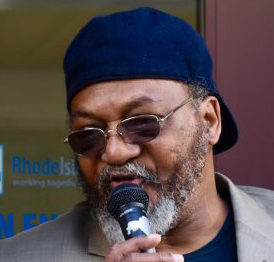Malchus Mills is the vice chairman of Direct Action for Rights and Equality, a group that advocates for low-income, elderly and disabled residents of Providence on issues including housing.
The group has initiated a drive to place a rent control law before city voters and is in the process of collecting signatures. The proposal would cap annual increases at 4 percent or the New England consumer price index increase, whichever is smaller, and would limit rent increases for units to once a calendar year, among other provisions.
Mills now lives in Pawtucket, in part because he said he was forced to leave the city after being unable to find an affordable apartment. Mills spoke to the Providence Business News about the quest for a rent control law.
PBN: Why is rent control the solution to gentrification pressure in Providence neighborhoods?
MILLS: What we’re trying to do with rent control is stabilize our communities. We would like to keep these apartments available to current tenants. Most of the municipalities fail to meet affordable-housing regulations and the state really fails to enforce them. There are a lot of outlying communities, where people have money, and what they do instead is they create housing for the elderly and disabled in order to maintain segregation.
Around 60 percent of Providence residents rent. That’s well over half of the city. And of those, well over half of the city’s renters are low-income. Well over half of the city’s renters are cost-burdened, meaning they pay more than 30 percent of their income just in housing costs. Sometimes a landlord will raise the rent $100 to $200 a month, all in one month. Sometimes you get a year’s lease and after that year it becomes month to month. That is not good for the tenant.
PBN: When did it become apparent to DARE that displacement from apartments was a widespread problem?
MILLS: Since the foreclosure problem and the housing bubble busting back in 2007 to 2008. Because of the foreclosure problems, there are now more renters than ever. And folks that once had a house or had their own home are finding it very hard to get refinanced for another home. It’s a thing of supply and demand. You have organizations that are buying up these houses that people have had to walk away from and now they’re starting to rent those places. We have a housing stock deficiency here in Providence.
PBN: You’ve had successes as an organization, the “Just Cause” state law that prevents eviction of tenants in structures that have been foreclosed. How does the effort to enact rent control compare?
MILLS: It took us six years. We’re trying to keep this from being a six-year battle. We have an ordinance we hope we can get on the ballot in November. Instead of going through the City Council … instead of going through the General Assembly. Gentrification, there’s no one thing we are going to be able to do that will stop it. It has to be done with a number of things.
PBN: Where else in New England has rent control been approved?
MILLS: They tried it in Portland, Maine. They lost their bid for that. In Boston, a [proposed law] would require landlords with more than six units must inform the city of all evictions. The city, in turn, informs the tenants of their rights through mailings. It’s another tool to try to curb the appetite of landlords. Most times when landlords raise their rents, they do not reinvest in their properties.
PBN: What is the process for getting this before voters?
MILLS: We need 1,000 signatures to take it to City Hall, so they can look over the signatures and make sure all the signatures are correct. We’re getting there. We have other organizations that are helping us. After that, we’re going to need more signatures to get it on the ballot.
Mary MacDonald is a staff writer for the PBN. Contact her at macdonald@PBN.com.













